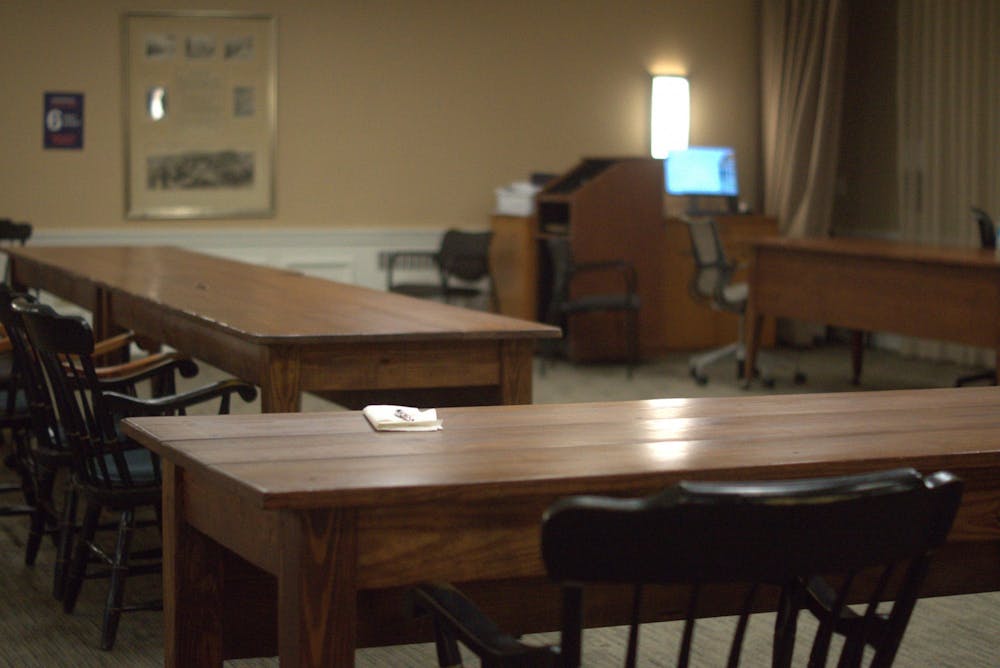Once again, we are writing about the Honor Committee. In just a few days, the Committee is planning to begin the first-ever Constitutional Convention. This comes after a historic vote last spring to change the sanction for committing an offense from expulsion to a two-semester leave of absence. Since the announcement of this convention, however, Honor has looked especially disorganized — defaulting on established promises, failing to communicate with the student body and reducing the event to an unrepresentative, unelected congregation of delegates. If the Committee is truly dedicated to meaningful reform, it must ensure the transparency and accessibility of this process. This convention — much like the Committee that plans to host it — belongs to us, the student body.
Based on recent debates during Committee meetings, it is unclear to us who lies at fault for Honor’s failure to successfully prepare for its convention. Regardless, the fact remains that the convention is imminent, and this inadequacy reflects on the Committee as a whole. The student body has been left largely in the dark. What was initially supposed to be a convention inclusive of all interested CIOs appears to have mysteriously morphed into a closed-door dealing where 30 unelected student delegates will get to speak on behalf of the more than 40,000 students and faculty members. We don't know why or how these delegates were chosen. We don't even know exactly when and where the convention will be held. This secrecy and inaccessibility has undermined the faith we originally had in this Committee’s dedication to meaningful reform.
Preventing special status organizations — such as the University Judiciary Committee, Student Bar Association and Student Council — from participating in the convention is antithetical to student self-governance. Denying these student leaders representation means the convention excludes critical perspectives. UJC already has a multi-sanction system and could offer valuable insight on how the Committee might develop its own, for example. It is also troubling to us that Honor seems to believe that all students are not entitled to a voice in this convention. Any member of the student body is able to address Student Council during its weekly public comment period. We do not understand why the Committee has not made similar efforts to establish a space for public involvement and has instead chosen to not involve SSOs. We agree with Honor leadership that “the best aspects of U.Va. have always been done in community.” If it truly wants a constitution that serves everyone, we should all have a say.
What’s more, we find it perplexing that the Committee expects students to buy into this process when their own members aren’t even doing so. Representatives have consistently failed to show up for meetings this fall, resulting in a lack of quorum. This is not a new problem. Students have no reason to trust this convention will be productive if the Committee’s meetings have not been.
The student body will not vote to ratify a constitution it had no hand in creating and Honor has a lot of work to do to build trust and increase buy-in amongst students and relevant stakeholders. A Constitutional Convention will not undo 180 years of institutional harm perpetuated against marginalized communities. The list of things the Committee must change in order to salvage our Community of Trust and accomplish reform is long. However, we believe that a decent place to start is remembering this convention is supposed to be for the student body, which has already expressed overwhelming disapproval of expulsion and how Honor has been operating for the last two centuries. It is clear that students are hungry for change. The Committee must respect that.
The Cavalier Daily Editorial Board is composed of the Executive Editor, the Editor-in-Chief, the two Opinion Editors, their Senior Associate and an Opinion Columnist. The board can be reached at eb@cavalierdaily.com.







